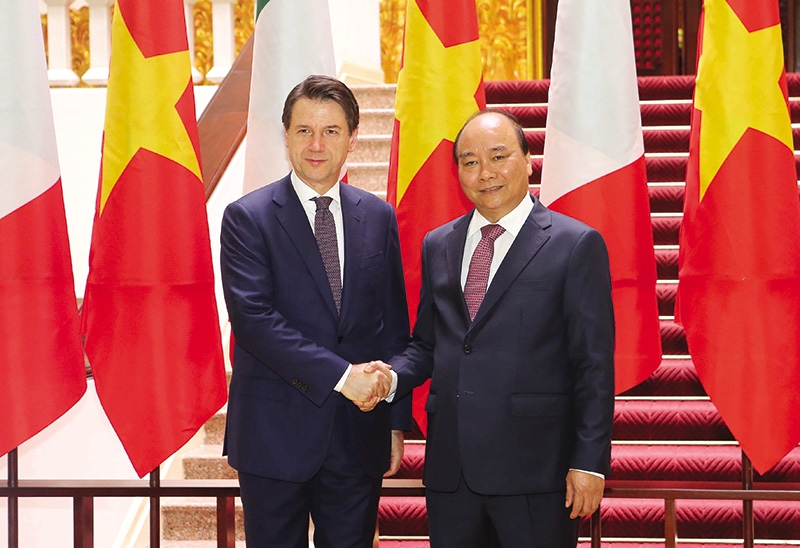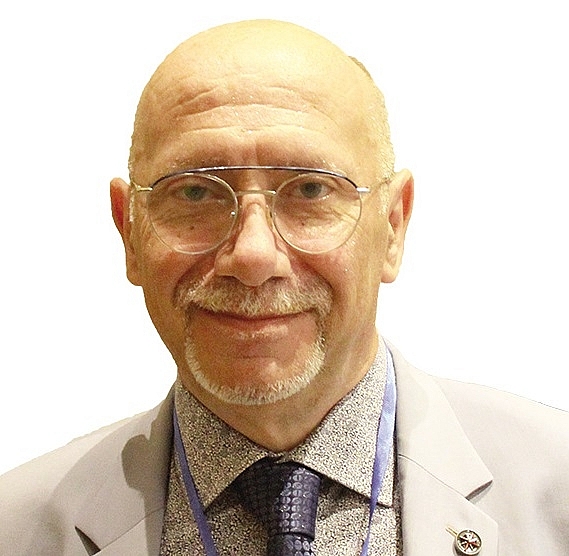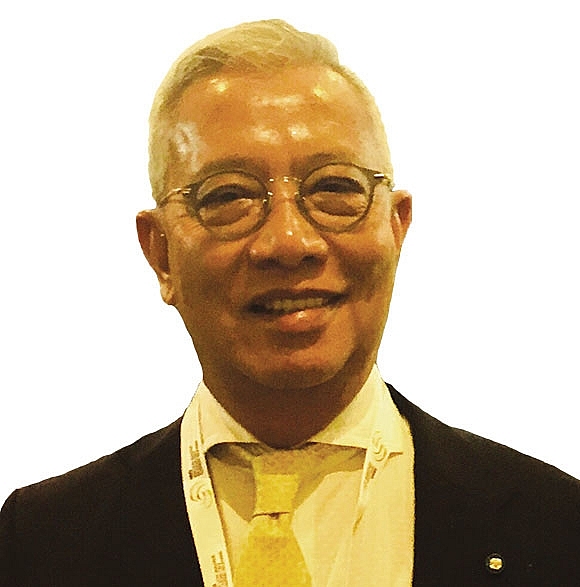Italian trade ties take off via tech and SME tie-up
 |
| Italian and Vietnamese prime ministers Giuseppe Conte and Nguyen Xuan Phuc held bilateral talks to raise two-way trade between the countries., photo VNA |
During bilateral talks between PM Conte and Vietnamese counterpart Nguyen Xuan Phuc in Hanoi, the two leaders agreed on the trade turnover targets, while promoting hopes that the EU-Vietnam Free Trade Agreement (EVFTA) is soon approved so that trade relations between Vietnam and the EU, and with Italy in particular, will develop in depth based on their mutual benefits.
“The Vietnamese government will facilitate Italian investors to co-operate with local counterparts so that together they can build Vietnam as the hub of technologies in the ASEAN,” said PM Phuc.
Meanwhile, PM Conte said that Vietnam is interested in mechanical products with quality and sustainability which Italian products can meet. “Italian businesses are willing to co-operate with Vietnamese partners to ensure the quality and sustainability of products,” said PM Conte. “I hope that Vietnam, our leading partner of Southeast Asia with a strong growth rate of 5-6 per cent per year, will help us reach the 650 million people of the ASEAN market.”
Vincenzo De Luca, director general for Cultural, Economic and Innovation Promotion of the Italian Ministry of Foreign Affairs and International Co-operation, said that Italian companies wish to co-operate with Vietnamese partners in the fields of innovation, finance, mechanics, and footwear. He made the comments at the Italian Technologies for Vietnam’s Smart & Circular Economy workshop, hosted by the Italian Trade Agency (ITA) in co-operation with the Embassy of Italy in Hanoi on June 5.
“As the second-biggest manufacturing country in Europe, with highlights in mechanics, technologies, and renewable energy, we want to learn more about the demand and ability of Vietnam so that we can co-operate based on a sustainable economy with advanced technologies,” Luca said. “We start with trade exchange, but we don’t stop with it. We will develop networking, and enhance our ability to look forward into new markets.”
Meanwhile, Giovani Zacco, board member of Ucimu-Sistemi Per Produrre, an association on manufacturing of automation systems, said, “Vietnam is developing infrastructure, and prioritising the development of renewable energy in the war against climate change. We wish to co-operate with Vietnam in terms of infrastructure, and hydro, wind, and solar power.”
According to Zacco, the two countries have similar systems of small- and medium-sized enterprises. With success in developing these enterprises, Italy can also share with and support Vietnam in this field.
Affirming the significant development in the bilateral relationship between Vietnam and Italy, Carlo Ferro, president of the ITA, said, “Tighter economic and trade co-operation was signed between Italy’s Ministry of Economic Development and Vietnam’s Ministry of Industry and Trade in 2014. Between 2010 and 2018, bilateral trade was tripled.”
“Italy is now Vietnam’s second-biggest foreign investor from Europe. So far, in Vietnam, there have been 84 Italian companies working in different fields and contributing to the country’s socio-economic development,” he added.
According to Ferro, with the support of Italy, two hi-tech centres for footwear and textiles were established in Vietnam’s southern province of Binh Duong and Ho Chi Minh City, respectively. Another centre with all machines being imported from Italy is also going to be established soon.
Diep Thanh Kiet, deputy chairman of the Vietnam Leather, Footwear and Handbag Association, said that the Italy-Vietnam Footwear Technological Training Center was formed with the aim of enhancing capacity in Vietnamese footwear enterprises, particularly for small- and medium-sized ones.
“The centre has helped Vietnam enterprises integrate into the global value chain because most of Vietnam enterprises are of the processing type. Thanks to the support of Italian experts, 210 highly-skilled employees in domestic footwear companies have been trained,” Kiet added.
Meanwhile, Dao Phan Long, chairman of the Vietnam Association of Mechanical Industry, said, “Each year, Vietnam spends about VND115 trillion ($5 billion) on mechanic items like machines and parts. This is a huge potential for Italian corporations, which are very strong in the field of mechanics.”
“Vietnam now requires development based on innovation and environmental friendliness. Therefore, the country is attracting foreign direct investment in high technologies. In that development strategy, I believe that Italy and other developed countries will be trustful and important partners of Vietnam,” said Vu Tien Loc, chairman of the Vietnam Chamber of Commerce and Industry.
Vietnam and Italy set up diplomatic ties in 1973 and in 2014 the relationship was upgraded to a strategic partnership, enhancing co-operation in politics, economy, culture, and education.
Last year, the bilateral trade turnover between Vietnam and Italy reached $4.6 billion, tripled within the past decade from $1.5 billion in 2009. Vietnam is the biggest trade partner of Italy in the ASEAN bloc, while Italy is the third-largest trade partner of Vietnam in the EU.
As of 2018, Italy ranked 32nd among the 128 countries and territories investing in Vietnam, with 86 projects worth $388 million.
During the major Italian visit, the 3rd High-level Dialogue on ASEAN-Italy Economic Relations also took place, with the participation of over 500 representatives from 18 industrial associations from Italian and ASEAN member states. At the event, domestic and international experts analysed that Vietnam, boasting 12 current free trade agreements with different countries, is an open economy with many attractions for foreign investors.
| Joseph Perucca - General director GIVI Vietnam Ltd.
We have manufacturing facilities in Vietnam, Malaysia, and Indonesia. We are in the motorcycle industry and have been in Vietnam for over 10 years now. Our factory is now going for massive expansion. We have found here to be more competitive than other countries in Southeast Asia. We see a quantity of workers which we normally can’t find in China or other countries in Southeast Asia. Businesses do need some more understanding about international transactions, and other foreign investors will certainly need more protection and more help as Vietnam is growing very fast and therefore the cost of labour is also going up accordingly. Our business is improving both for the local market and for the external markets. Regarding the impact from current US-China trade tensions, we believe a system must be developed, and there must be a much fairer way of assessing import duty and tax because countries like China are no longer developing countries. It is a country that now has some of the richest people and some of the largest manufacturers in the world. As for expansion plans, we have just expanded our factory this year, and spent a further $1 million upgrading our current facility which we believe will last for the next three years. We are growing from a workforce of 300 to 550-600 people by the end of this year. Fabio d’Alba - Chief financial officer PROGETTO CMR
Our company is one of the first Italian design firms, and provides worldwide architectural services such as master planning, building, refurbishment, and interior design. We approached Vietnam three years ago and now this country is important for our strategic vision. Our company works in Vietnam with several municipalities not only to grow these kinds of services, but also to provide different solutions that are bespoke and innovative. It avails of all the essential skills for integrated design; in this way we also establish good relations with some private clients. At the moment, we have 70 per cent of business in Hanoi, 20 per cent in Ho Chi Minh City, and the remainder in some activities along the coast. Fortunately, the current global trade tensions don’t have any impact on us; nonetheless we have had an office in China for 18 years. We operate there through an independent structure, but in Vietnam we work directly with our headquarters in Italy, so the economic war between the US and China has not impacted our activities thus far. In light of future opportunities to invest in Vietnam, we have improved digital transformation also in our projects with the use of sophisticated software, like Building Information Modelling, that allows us to project in 3D, so we have an immediate effect about reality and absolute precision. Guido Romagnoli - Founder and director Inxtead Consulting
Our company, based in Danang, specialises in coaching Vietnamese companies about people development, in particular in the area of soft skills that are now needed by top- and middle-level management. The internationalisation of Vietnamese companies requires not only language and technical skills but also soft skills like leadership, communication, talent development, and talent retention. Major companies are making great progress with academies and universities and we are looking forward to complementing their training with coaching and leadership skills. We are focused on helping Italian companies achieve success in sales and commercial expansion inside Vietnam, particularly now when a number of Italian companies are looking to move or diversify their operations from China to Vietnam. So we are helping Italian companies to better understand Vietnam and be successful with sales acceleration, find local partners for manufacturing or local distributors to cover the growing market opportunities. It looks like companies from Europe are caught between a rock and a hard place while the trade war intensifies. We need to keep working on bilateral and multilateral partnerships like the one between Italy, Vietnam, and the ASEAN to make sure that we don’t just depend on the China-US relationship. Nguyen Huu Hung - Director, VITA Consultancy and Services
The potential for Vietnamese and Italian enterprises is huge. The openness of the Vietnamese market as well as improvement in terms of investment environment is favourable for Italian companies when deciding to invest and expand in Vietnam. Italy is very strong in terms of technologies, textiles, leather, and footwear which seem to be products impacted by the US-China trade war. Vietnam can see opportunities from the conflict, and this is a chance for foreign investors in general and Italian ones in particular. However, there are some issues that should be improved, including policies, and the quality of Vietnam’s labour force. So far, Vietnam’s labour force is abundant but lacks skilled workers. Italian companies have to send Vietnamese workers to their factories in Italy to train. One feature of Italian companies is that the number of small- and-medium-sized ones is very large. Among 84 Italian companies working in Vietnam, about 10 of them are big ones and the rest are family-run. That’s why many Vietnamese companies have used products made by Italian companies but have to buy products through a third party which might be from Germany, like the case of Tien Phong Plastic in Ho Chi Minh City. |
What the stars mean:
★ Poor ★ ★ Promising ★★★ Good ★★★★ Very good ★★★★★ Exceptional
Related Contents
Latest News
More News
- Russian President congratulates Vietnamese Party leader during phone talks (January 25, 2026 | 09:58)
- Worldwide congratulations underscore confidence in Vietnam’s 14th Party Congress (January 23, 2026 | 09:02)
- Political parties, organisations, int’l friends send congratulations to 14th National Party Congress (January 22, 2026 | 09:33)
- 14th National Party Congress: Japanese media highlight Vietnam’s growth targets (January 21, 2026 | 09:46)
- 14th National Party Congress: Driving force for Vietnam to continue renewal, innovation, breakthroughs (January 21, 2026 | 09:42)
- Vietnam remains spiritual support for progressive forces: Colombian party leader (January 21, 2026 | 08:00)
- Int'l media provides large coverage of 14th National Party Congress's first working day (January 20, 2026 | 09:09)
- Vietnamese firms win top honours at ASEAN Digital Awards (January 16, 2026 | 16:45)
- ASEAN Digital Ministers' Meeting opens in Hanoi (January 15, 2026 | 15:33)
- ASEAN economies move up the global chip value chain (December 09, 2025 | 13:32)





 Tag:
Tag:




















 Mobile Version
Mobile Version